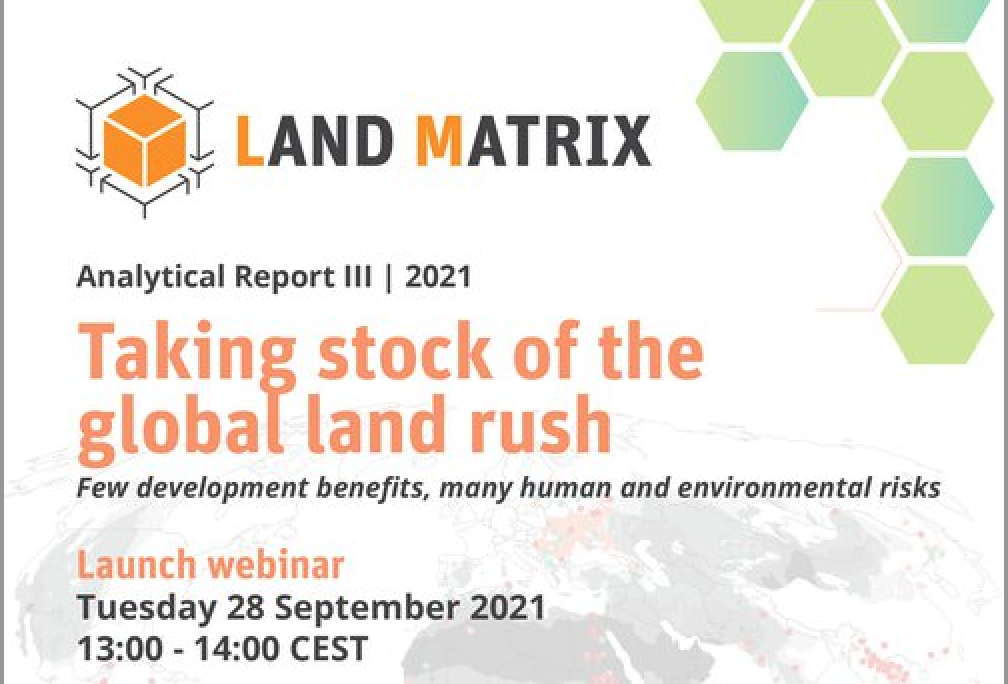More than 10 years after the surge in large-scale land acquisitions (LSLAs) in developing countries following the spike in agricultural commodity prices in the late 2000s, the LMI has taken stock of the “global land rush” and its socio-economic and environmental impacts in its latest analytical report. The findings of the report are sobering, in part alarming, and highlight the urgent need to rethink LSLAs, which have reached a staggering total targeted size of 33 million hectares for agricultural and transnational deals.
Specifically, the report shows that, since a large fraction of the targeted area has yet to be put into agricultural production, and that expanding production poses a significant threat to rural livelihoods and natural habitats, swift and decisive action is needed to protect both. The report also shows that the non-consensual and uncompensated loss of land experienced by local communities often comes with only little socioeconomic benefits. Besides economic woes, LSLAs continue to destroy rainforests, natural habitats, and biodiversity on the agricultural frontiers. Overall, although progress has been made in terms of land governance, a lack of policy implementation in this area is evident. This is particularly apparent from the LMI’s assessment of the application of the Voluntary Guidelines on the Responsible Governance of Tenure (VGGTs) and the dismal transparency of most land acquisitions.
The LMI is a partnership between the Centre for Development and Environment (CDE) at the University of Bern, Centre de cooperation Internationale en Recherche Agronomique pour le Développement (CIRAD), German Institute for Global and Area Studies (GIGA), Gesellschaft für Internationale Zusammenarbeit (GIZ), and International Land Coalition (ILC) at global level, and the Asian Farmers’ Association for Sustainable Rural Development (AFA), Centre for Environmental Initiatives Ecoaction, Fundación para el Desarrollo en Justicia y Paz (FUNDAPAZ), and University of Pretoria at regional level.
Register here
